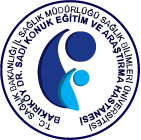ABSTRACT
Objective:
Comparative evaluation of the auxiliary laboratory tests used for quick and correct diagnosis with urine culture results in children with suspected urinary system infection was investigated.
Material and Methods:
A prospective screening study was held on 239 patients between the ages of 9 months and 14 years, who referred to the outpatient clinic of child health and disease, with suspected urinary tract infection. Complete urine tests, urine cultures, whole blood counts, and tests for urea, creatinine, and C-reactive protein levels were performed in all patients.
Results:
As urine culture is the gold standard in diagnosis of urinary system infections, definitive tests were compared between groups with or without growth. According to this, while CRP did not differ significantly between groups (p>0,05), leukocyte counts, leukocyturia levels, and leukocyte esterase positivity was significantly higher in the group with positive culture growth (p>0,05).
Conclusion:
It was concluded that leukocyte esterase was the most sensitive test, while microscopic leukocyturia was the most specific test among the definitive tests in the diagnosis of urinary tract infection, compared with culture results.



